[log in to unmask]" style="color:inherit;text-decoration:none;display:inline-block;vertical-align:middle;margin-right:8px" target="_blank"> [log in to unmask]" style="color:inherit;text-decoration:underline" target="_blank">Rahim Thawer ∙ 11 min read ∙ View on MediumSupporting family members when queer & trans Muslims come outWritten by Rahim Thawer, MSW 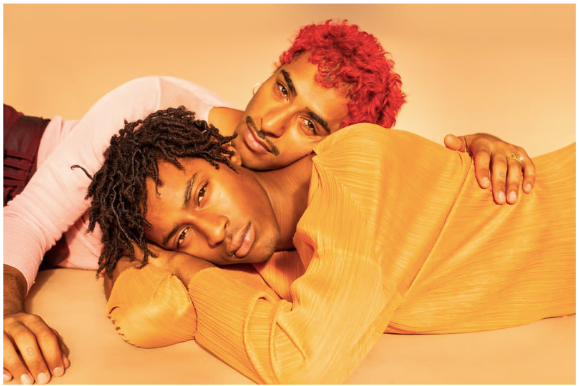  Stock image from Canva About 5 years ago, I co-created a webinar series with my queer Muslim pals from the USA: Fayzan, Shahnaz, and Saadia. We created interactive sessions for a North American audience to respond to common questions we’ve received as queer and trans Muslims. Those sessions went well but the intervention was limited by time and our volunteer capacity so they didn’t continue annually as we had hoped. We also spoke from experience and had not documented our responses. I recently revisited the questions and decided to write out responses that could be used in a support group manual called Crescent Moon: A Facilitator’s Guide to Supporting Family Members of LGBTQ+ Muslims. In this article, I’ve shared seven common questions from the pool we received many years ago and I’ve articulated my responses below. These have been written for family members of LGBTQ+ Muslims but they are widely applicable to others. The main purpose of this article is to alleviate the burden of education that falls on so many LGBTQ+ people — it’s nothing short of exhausting and the role of a spokesperson can set back our own psychological development. There’s a beautiful life waiting for us on the other side of the rainbow and it’s not fair for us to be hindered by other people’s questions. So, here goes. What causes someone to be gay, lesbian, bisexual or trans; is it biology or their environment (i.e. nature or nurture)? It’s not uncommon for people to have a range of assumptions about the LGBTQ+ community. For instance, you might assume that people become gay, lesbian, bisexual or transgender as a result of some adverse life experience. If that’s your starting place, you will then try to create a story that helps explain why your loved one is LGBTQ+. For example, you might think:
My Responses It’s unhelpful to suggest that someone has chosen to be LGBTQ+. While many LGBTQ+ people will have joyful and fulfilling lives, when they first begin to explore their identities, it’s usually quite scary and isolating. LGBTQ+ people often know they are different from a young age and have spent a lot of time trying to make sense of who they are in the world. In addition, LGBTQ+ people who do not fit into neat gender boxes are also the targets of bullying. Therefore, it’s offensive (and not sensible) to think that someone has chosen to be marginalized or chosen a path that could lead to potential rejection and abandonment from their family members. You might still wonder if social context can influence a person’s sexuality or gender. The answer is yes. But, what is being influenced is their experience of opportunities to safely express who they are. Social context cannot “turn” someone queer or trans. That means there were likely lots of LGBTQ+ people in your life as a child and adult but you may not have known because the social context didn’t make it safe enough for them to express it. People sometimes get curious about the biological origins of being LGBTQ+. They’ll consider the possibilities of hormone imbalance and genetic testing. It’s important to be critical when engaging with these theories. The entire framing of this “scientific question” has a baseline assumption that being heterosexual and cisgender are normal and all other expressions of gender and sexuality are deviant. In truth, being heterosexual and cisgender is not more normal than being LGBTQ+; they are simply more common and more visible. Further, we don’t need to understand the biology of LGBTQ+ orientations any more than we need to study the biology of heterosexuality; these are simply social and biological occurrences in the population. 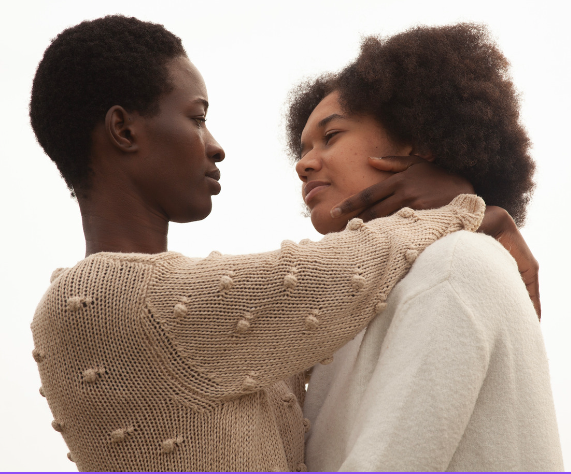  Stock image from Canva. Can someone try (or pray) to be straight or cisgender? Can therapy help change someone? Most LGBTQ+ people have gone through an initial period of curiosity, conflict and inquiry before being ready to share their identity with others more openly. During this period, they will have already considered trying to fit into the larger majority and concluded that this is not possible for them. Trying to change a person’s sexual orientation or gender identity is extremely harmful. All major psychological associations internationally have denounced the practice of reparative therapy. It’s widely recognized that such change efforts have detrimental consequences for a person’s mental health. In Muslim communities, people will sometimes frame “tendencies” and “urges” toward same-gender attraction as a test from Allah. This is not helpful to the LGBTQ+ person because you are telling them that they are failing their own Creator. Instead, we should reframe this concept to suggest that Allah is testing the strength of a family to unconditionally love and accept their LGBTQ+ loved one. In Muslim communities, people will sometimes also consider (or threaten) sending their loved one back home. There’s an assumption here that the cause of your loved one’s identity is the influence of Western culture and that exposure to another culture will “cure” them. This assumption is entirely faulty: there are LGBTQ+ people everywhere. Did this happen because we failed as parents? Are we being punished for shortcomings/sins? Parenting style has no bearing on someone’s sexual orientation or gender identity. However, a supportive environment for self-expression will help a child develop healthy self-esteem and the confidence needed to face challenges in the world. The conversation on “bad parenting” can be frustrating because it takes away from the story about the LGBTQ+ person’s experience and shifts the focus to the grieving parents. When people frame having an LGBTQ+ family member as a punishment from God, we must stop to think about how that makes our loved ones feel. For those who believe in the concept of punishment from God for something (e.g. lying, cheating, lack of piety, not paying zakat, or not fasting), it’s more helpful to think about the consequence in your own life instead of vicarious punishment through a family member. Your family members don’t exist simply as rewards or punishments for your life choices — they are their own person with their own complexities. Why would someone change who they are if they were born a man/woman? Firstly, we must reflect on how each of us was taught about being a man or a woman in our specific families and communities. When was it not helpful to be given gender-specific rules? For example, social rules that determine whether or not you can show emotion or rules that suggest what your role in a marriage or partnership should be. Strict ideas about how to be a man or how to be a woman are limiting for many people and need to be deconstructed. Even if you didn’t find gender-specific roles to be limiting, we must recognize that they don’t work for some people and imposing limits can be outright harmful. Across the globe and across cultures, there are people who understand themselves beyond the simplicity of a two-gender model. They are not ill; rather, they are enlightened. They may be of both masculine and feminine expressions; they may be part of a third gender; they may desire to move around in the world in a gender different than what they were assigned at birth. These human experiences of transcendence challenge those of us who have never questioned our own gender identity. People who identify with the gender they were assigned at birth (like most of us in this room), are not “more normal” but rather, we are simply more common. This interactive map shows the number of cultures where more than two genders are found: https://www.pbs.org/independentlens/content/two-spirits_map-html/ Some transgender people will want to pursue medical transition procedures while others will not. The common conservative argument used against T/GNC people is that “God has created everything as it is” and “God does not make mistakes.” However, the world we live in is more complex than this. And, Muslims everywhere avail themselves of medical procedures in order to better their health and prolong their lives. This is also true for trans and gender non-conforming people. In fact, surgical transition procedures are almost always deemed medically necessary for the well-being of transgender people. Further, many Islamic scholars argue that the Quranic verses pertaining to “changing the creation of Allah” or “wrongly interfering in God’s creation” do not refer to the body or to gender-affirming surgery, but refer to “changing religion, namely Islam, and God’s commands.” Islam has always taken sides with the oppressed rather than with the oppressor since the day of its establishment, and this MUST include taking a stand against transphobia. In order to understand the trans experience, we must listen to the voices of trans Muslims. Here are some resources that can allow us to gain a better understanding: Gender Spectrum. (2018). “Being Transgender and Muslim” with Mahdia Lynn, founder of Masjid al-Rabia Mosque [YouTube Video]. Jagiella, L. (2021). Among the eunuchs: A Muslim transgender journey [Memoir]. Hurst & Company. Life, V. (2022). The School Helping Trans Muslims in Indonesia | Transnational [YouTube Video]. TEDx Talks. (2021). A Divine Departure: A Journey of A Moslem Transman | Amar Alfikar | TEDxJakartaWomen [YouTube Video]. TEDx Talks. (2015). Brown, trans, queer, Muslim and proud | Sabah Choudrey | TEDxBrixton [YouTube Video]. Zaharin, A. A. M., & Pallotta-Chiarolli, M. (2020). Countering Islamic conservatism on being transgender: Clarifying Tantawi’s and Khomeini’s fatwas from the progressive Muslim standpoint. International Journal of Transgender Health, 21(3), 235–241. 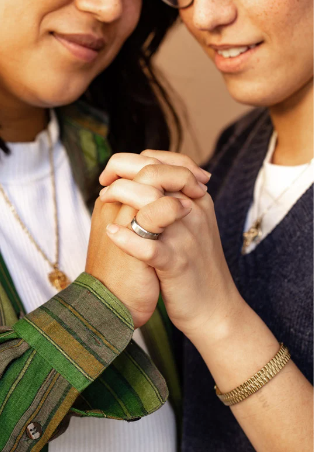  Stock image from Canva We accept our loved one but why do they need to tell everyone? Having other people in your cultural and religious community know that someone in your family openly identifies as LGBTQ+ can be stressful. You might be concerned about how they will treat you and your loved ones. You may have a strong desire to control who knows what information about your family. Unfortunately, this will likely cause tension and conflict in your family. LGBTQ+ people usually experience deep shame earlier in their journeys for being different and for feeling like they’ve let their families down. By the time they have “come out” to you, they’ve overcome a significant amount of shame and it feels appropriate to want to celebrate that by specifically not hiding who they are. Events like Pride can seem like unnecessary broadcasting of one’s personal life. However, these events are actually unique opportunities for LGBTQ+ people to be around others like them and feel good about themselves. Straight and cisgender people get to experience being in their own communities almost daily and so they might have a harder time appreciating the need for events that celebrate minority identities. Remember that heterosexuality is on display and celebrated everywhere: affection shown by couples, the emphasis and money spent on weddings, the welcoming of new children to the family; being LGBTQ+ can mean re-imagining what our lives will look like. Finally, sharing who we are openly is important for other LGBTQ+ people. When they see visible LGBTQ+ people, it makes them feel good about themselves and reduces their isolation. Many LGBTQ+ Muslims emphasize that they are both LGBTQ+ and Muslim. This is sometimes met with resistance from dominant Muslim communities. It’s important to recognize that all Muslims have a right to practice Islam in a way that upholds their own dignity. 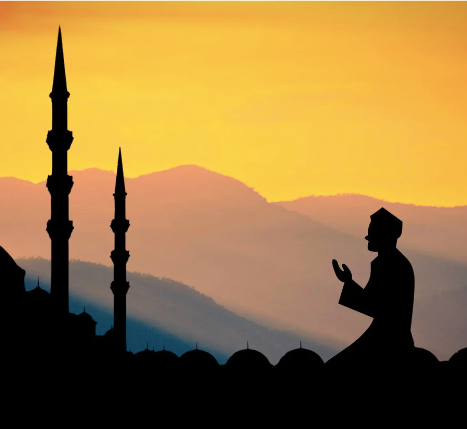  Stock image from Canva This is a Western thing. Why did we not know any LGBTQ+ people back home? It’s important to recognize that even if your own experience in your country of origin didn’t include LGBTQ+ people, that doesn’t mean they didn’t exist. Rather, it means that visibility was low due to a lack of safety. Or, it means that you didn’t have opportunities to meet people that were unlike yourself. Here is a list of LGBTQ+ organizations across the world, including in Muslim-majority countries. If your country of origin still isn’t a safe place for LGBTQ+ people today, it is very possible that your loved one may not have “come out” if you were living there now. However, that doesn’t mean they would not have been who they are, rather it would have been harder to be who they are. You may also find this historical account of Homosexuality in the Islamic World particularly illuminating — https://medium.com/media/b12b6edc00cc85aa76c074c2d2d1ca77/href What do Islam and the Qur’an say about being LGBTQ+? Or, other religious theology for that matter? Many LGBTQ+ Muslims and their families turn to theological texts and teachings to examine where their experiences and identities are celebrated. Often, the Story of Prophet Lut is used as religious justification to condemn LGBTQ+ Muslims. Thankfully, lots of prominent Muslim theologians and Imams have disproved the Story of Lut being about homosexuality. A closer reading of the verses reveals that the Story of Prophet Lut is about a community of people being inhospitable and participating in the sexual abuse and rape of strangers. LGBTQ+ Muslims, like everyone else, seek intimacy and consensual, loving relationships. They should be able to do so without their deen questioned and offered the love and support of their family and friends. I have personally felt moved by The Radical, a documentary about a gay Imam in South Africa. If you are of Christian faith, please watch For The Bible Tells Me So. If you are of Jewish faith, please watch Trembling Before G*d. Documentary films feature brave characters who tell their stories because not all of us can. Where to go from here? We’ve covered some basic ground. While you may still have many questions, my hope is that your curiosity will run deeper than some of the questions listed above. Further, my hope is that you will continue to ask questions in the spirit of understanding your loved one and not for the purpose of contradicting their lived experiences of being queer/trans and Muslim. 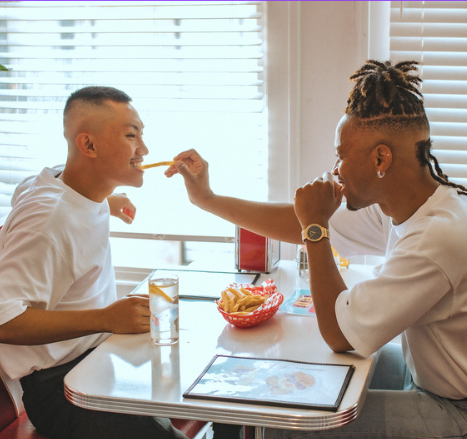  Stock image from Canva ResourcesThe list below has been drawn from https://www.salaamcanada.info/publications Community Publications
Salaam Canada Publications
Academic and Journal Articles:
Online Videos and Lectures:
Sent to [log in to unmask] by Rahim Thawer on Medium Unsubscribe from this writer’s Medium emails Unsubscribe from all newsletters sent using Medium Medium, 548 Market St, PMB 42061, San Francisco, CA 94104 Careers·Help Center·Privacy Policy·Terms of service |